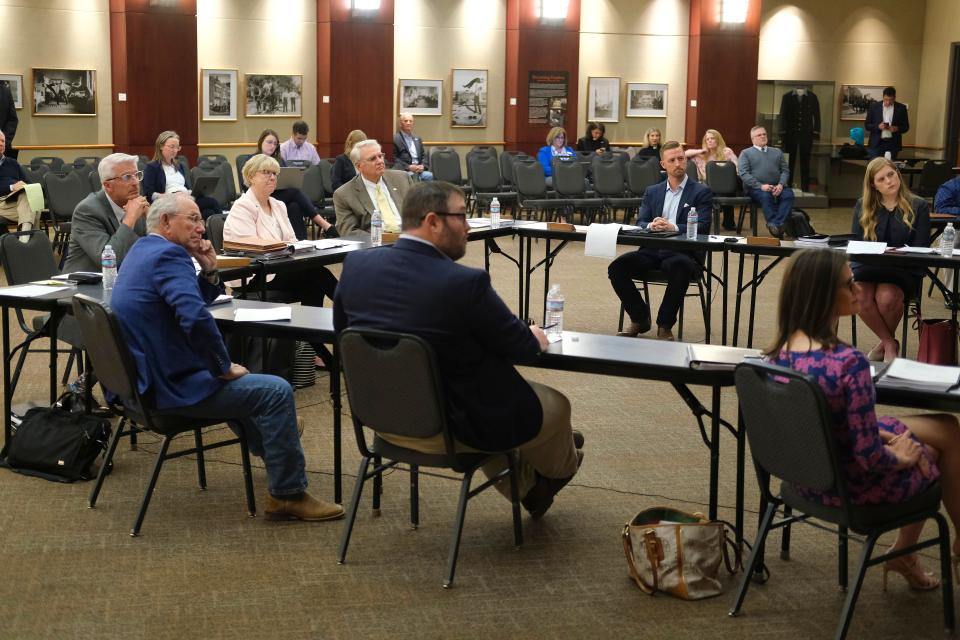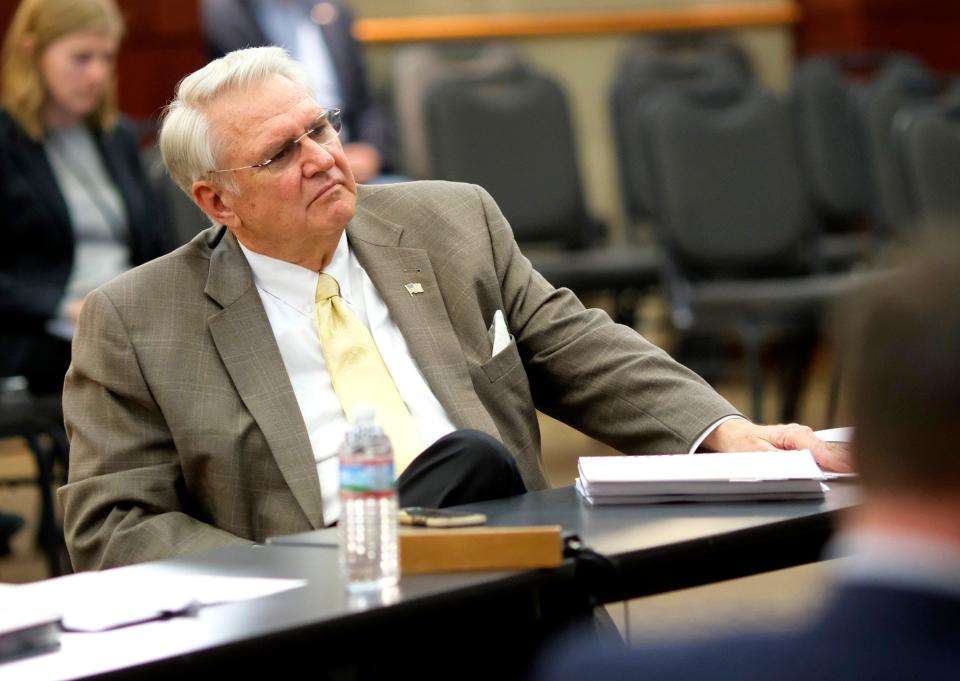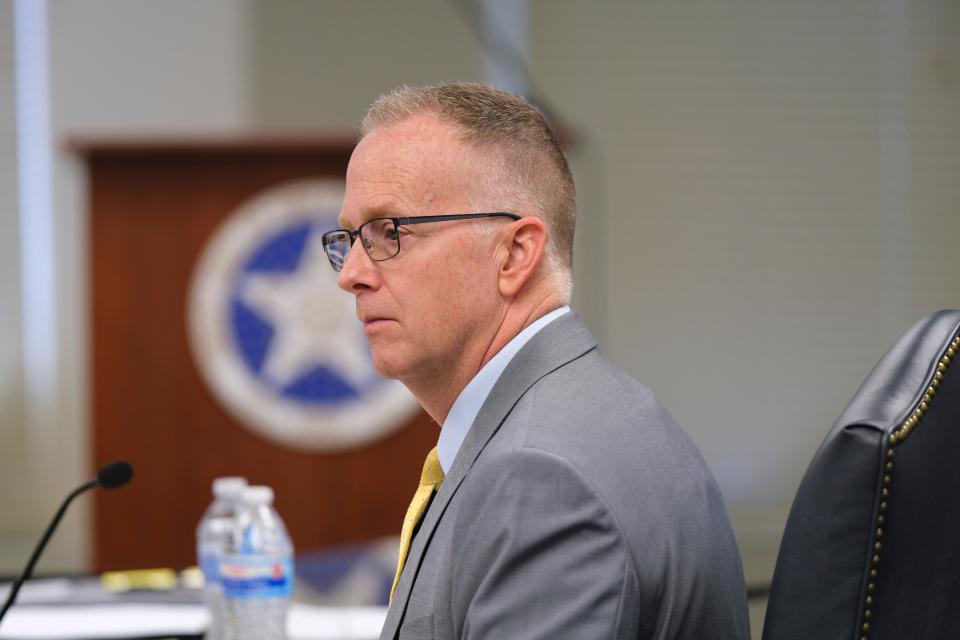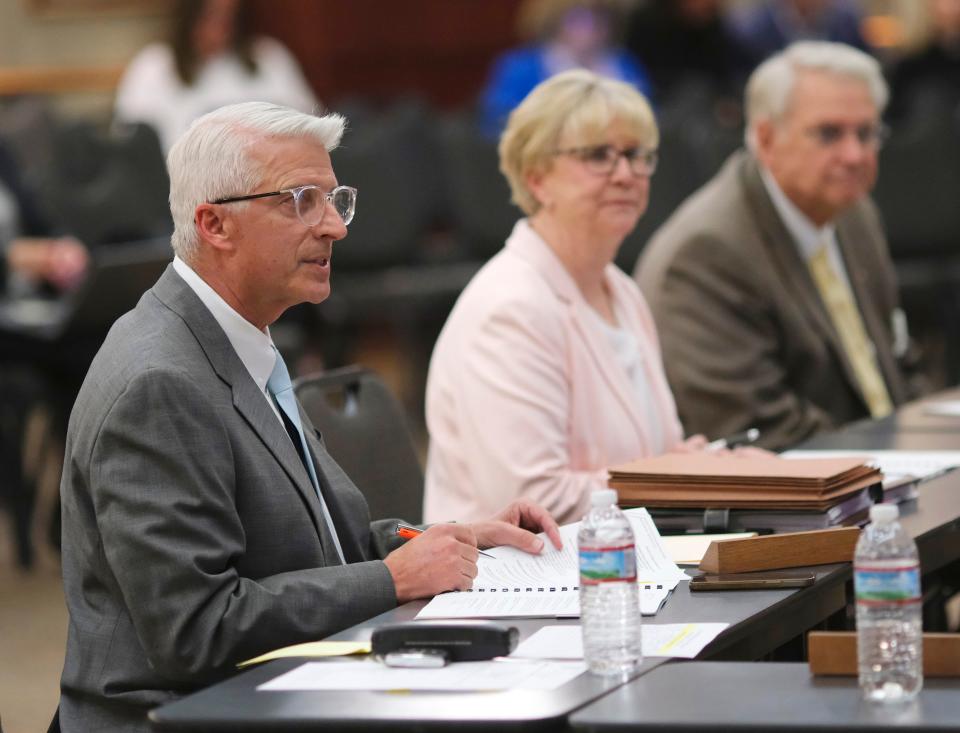Oklahoma board approves nation's first religious public charter school
An Oklahoma school board voted Monday to approve what would be the country’s first taxpayer-funded religious school amid threats of lawsuits, dueling attorney general stances, a last-minute board member replacement and growing national interest.
The Archdiocese of Oklahoma City intends to open St. Isidore of Seville Catholic Virtual School in 2024, serving students K-12 in all parts of the state. It would be free for all students and funded by the state of Oklahoma.
The Oklahoma Statewide Virtual Charter School Board, which oversees all online charter schools in the state, voted 3-2 in favor of establishing St. Isidore of Seville.

Archdiocese officials have been unequivocal that the school will promote the Catholic faith and operate according to church doctrine, including its views on sexual orientation and gender identity, raising questions of whether St. Isidore of Seville would abide by all federal non-discrimination requirements.
A member of the school's Board of Directors, Brett Farley, has said "it's too early to even say" whether openly gay or transgender students and employees would be welcome at the school. The Statewide Virtual Charter School Board agreed to give religious exemptions to state and federal laws that contradict Catholic beliefs.
"We think this is just an extension of what we've been doing in Oklahoma, which is providing more opportunities for education for kids that need it," said Farley, who's also a lobbyist for the Archdiocese of Oklahoma City and the Diocese of Tulsa.
In April, the board rejected an application to create St. Isidore of Seville over concerns with the school's governance structure, its plan for special education students, and its ability to keep private and public funds separate. The archdiocese adjusted and resubmitted the application, prompting Monday's vote.
One organization, Americans United for the Separation of Church and State, has pledged to fight the decision in court.
"State and federal law are clear: Charter schools are public schools that must be secular and open to all students," the group's President and CEO Rachel Laser said in a statement. "No public-school family should fear that their child will be required by charter schools to take theology classes or be expelled for failing to conform to religious doctrines. And the government should never force anyone to fund religious education."
Approval could create 'slippery slope,' AG Gentner Drummond says
The board approved the school despite state law requiring public schools to be free of control from any religious sect. Advocates for St. Isidore of Seville say recent Supreme Court rulings state a private entity can't be excluded from public funding on religious grounds.
Oklahoma law considers charter schools to be public schools subject to state and federal laws, but supporters of St. Isidore of Seville argued a charter school should be viewed as a private entity separate from the state.
"The entire point of the charter program is to incentivize and support private organizations to come create new, innovative, diverse learning opportunities," said John Meiser, from the University of Notre Dame Law School's Religious Liberty Institute. "These are not government employees, and no child is required to attend one of these schools."
Attorney General Gentner Drummond warned St. Isidore of Seville would create a “slippery slope” toward state-funded religion. Drummond withdrew an opinion from his predecessor, John O’Connor, who in his final month in office said recent U.S. Supreme Court rulings compelled the state to accept religiously affiliated public charter schools.
O’Connor cited cases that had “little precedential value” to charter school law, Drummond said.
Despite Drummond’s opposition, the concept of a religious charter school has gained support from other Republican leaders in the state, including Gov. Kevin Stitt and state schools Superintendent Ryan Walters.

Board member abruptly replaced days before Catholic charter school vote
An abrupt replacement of a board member could draw additional scrutiny to Monday’s vote.
The board received notice Friday afternoon from House Speaker Charles McCall that he had replaced one of the board's most experienced members, Barry Beauchamp, with Brian Bobek, a known Stitt and Walters ally who sat on the Oklahoma State Board of Education from 2019 to 2022.
While serving as a Stitt appointee on the State Board of Education, Bobek repeatedly voted in line with the governor's political interests, and he made personal donations to Walters' campaign for state superintendent.
Beauchamp's term had expired months ago, and before the expiration, the board contacted McCall notifying the speaker that Beauchamp was willing to serve another term if reappointed, board Chairperson Robert Franklin told The Oklahoman. In the meantime, Beauchamp continued to serve on the board until McCall made an appointment decision.
Franklin said months passed with no response until Friday, when the board received word that McCall had chosen Bobek to fill Beauchamp's seat.

A spokesperson for the speaker, Daniel Seitz, said McCall made the appointment simply to fill an expired term and multiple people suggested Bobek for the position, though Seitz declined to say specifically who made the recommendation.
“The speaker hasn’t told his appointee how to vote on anything," Seitz said.
During the board meeting, Franklin asked Bobek to abstain from the Catholic school vote. He said the decision was too important to be called into question over a technicality.
Bobek did not abstain and proceeded to vote in favor of the archdiocese's application.
Bobek, who declined to answer reporters' questions, read a prepared statement during the meeting, arguing a vote against the archdiocese application would violate the First Amendment.
“As a board member, I’m duly bound to support, obey and defend the United States Constitution," he said.
Scott Strawn, a recent Stitt appointee, and Nellie Tayloe Sanders, a new member chosen by Senate Pro Tem Greg Treat, also voted in favor of the Catholic school.
Another of McCall's recent appointees, William Pearson, voted with Franklin against the archdiocese application.
What happens next?
The decision kicks off a potential test case for the U.S. Supreme Court on the issue of religious public schools, and Farley said the archdiocese will be "prepared for that, if it comes."
He said "it's certainly possible" the coming legal battle could delay the school opening.
The next step for the statewide board and school officials is to develop a charter contract to establish St. Isidore of Seville, another process that promises to be unorthodox.
The school's application makes clear it reserves the right for a religious exemption to state and federal requirements that contradict Catholic teachings, meaning the state might have to give leeway on regulations that are mandatory for other virtual charter schools.
That includes anti-discrimination rules that prohibit a school from denying someone enrollment or employment on the basis of sexual orientation and gender identity.

Monday's decision also contradicts years of effort from the board to ensure virtual charter schools have governing boards that are fully independent from private groups hired to help run the schools.
For St. Isidore of Seville, the statewide board approved a governance structure that allows the archbishop of Oklahoma City and the bishop of Tulsa to choose the school's board of directors, which is currently made up of multiple archdiocese and diocese employees. That same board of directors plans to hire the archdiocese to manage the school.
A similar structure landed Epic Charter Schools in hot water with the statewide board and the Oklahoma State Auditor and Inspector's Office.
"We just stepped right back into a trap door," Franklin said after the meeting. "The archdiocese and the Catholic Church, I have absolute, ultimate respect in what they aspire to do, but in regard to good governance and good separation of powers, it does not align."
Reporter Nuria Martinez-Keel covers K-12 and higher education throughout the state of Oklahoma. Have a story idea for Nuria? She can be reached at nmartinez-keel@oklahoman.com or on Twitter at @NuriaMKeel. Support Nuria’s work and that of other Oklahoman journalists by purchasing a digital subscription today at subscribe.oklahoman.com.
This article originally appeared on Oklahoman: Oklahoma religious charter public school is first in nation to be approved

 money
money 